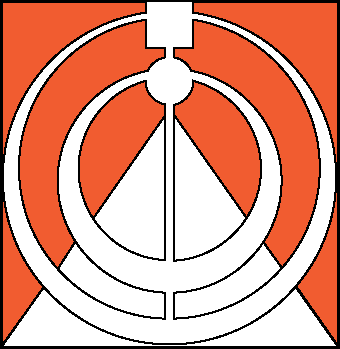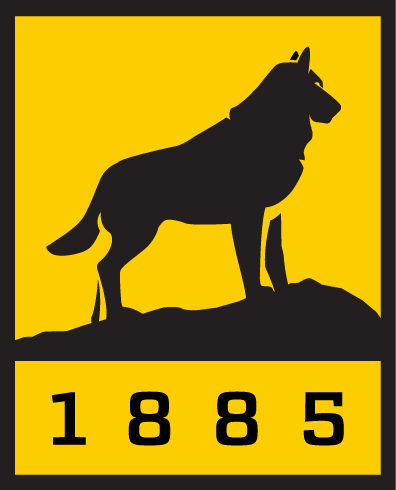Mi-STAR Launches First Wave of Trainers into Michigan Schools
Friday, January 5, 2018
The Mi-STAR staff have always known they wouldn't be able to provide one-on-one support to all the science teachers who want the new curriculum, which is  based on the Next Generation Science Standards (NGSS). After all, there are over 600 middle schools in Michigan.
Most teachers are unfamiliar with the NGSS approach to science education, let alone Mi-STAR's unique curriculum. So this summer Mi-STAR launched its pilot Professional Learning Program. More than 40 Michigan teacher leaders and professional learning experts from throughout the state signed up to help their districts' middle school science teachers bring Mi-STAR to their classrooms.
“Normally, science curricula use textbooks as the centerpiece of student learning,†said Emily Gochis, Mi-STAR's coordinator of professional learning. In contrast, Mi-STAR does not rely on a textbook; instead, the Mi-STAR curriculum is available to teachers through an online portal and is associated with substantial professional learning for teachers. “This is just one of the ways that the Mi-STAR curriculum is different from the traditional science classroom experience. Teachers need support to transition to the new way of teaching and learning, and that is where the Mi-STAR Professional Learning Program comes in.â€
Mi-STAR staff were excited by the interest from districts and individual teachers in the Professional Learning Program. Ultimately, two cohorts of educators joined the program to become certified Mi-STAR Professional Learning Facilitators (PLFs).
The program focuses on providing PLFs with the training and support they will need to help guide other teachers in the use of Mi-STAR or any other NGSS-aligned curriculum. PLF training begins with a seven-hour online primer, which is followed by three days of face-to-face instruction. In 2017, Mi-STAR held two training sessions, one in Lansing and another at Oakland Schools in Waterford.
Throughout the face-to-face training, PLFs learn about Mi-STAR's key strategies: how to work through a Unit Challenge and implement three-dimensional learning and assessment activities that are aligned with the Next Generation Science Standards and the Michigan Science Standards. “We incorporate best practices in pedagogy that are known to promote student learning and during the training we show how those work within the Mi-STAR curriculum,†Gochis said. On the last day of the face-to-face session, the newly trained PLFs can plan their own workshops and practice leading training activities.
The Professional Learning Program is about more than training, Gochis notes. “It helps us get to know facilitators and builds the Mi-STAR community, which is essential,†she said. “We give them resources, a virtual library and videos. We also ask for their feedback. Our goal is to continually improve the PLF training, so it can be even more successful in the future.â€
Megan Coonan, math and science consultant at the Saginaw Intermediate School District, called the PLF workshop “very helpful.â€
“After the training, I was well prepared to go back to my district and follow an implementation plan,†she said. “This is a really important aspect of Mi-STAR. It's a complex curriculum, not like the typical textbook, and they don't just hand something off to the districts and hope for the best. They are maintaining the fidelity of the program, and I'm really glad they do that.â€
She also appreciates that help doesn't end after three days. “Mi-STAR provides ongoing support,†said Coonan. “I can contact people immediately if I need help and get all the information I need.â€
But perhaps the best part was talking with her peers. “I really liked the discussion and networking with other teachers, getting their perspectives on how to teach Mi-STAR,â€
Coonan said. “For me, that's the biggest effect of the training: we're learning a lot from each other.â€
Jen Lenon agreed. “Working with that group of people was really powerful because they had a deep understanding of the NGSS,†said Lenon, a learning coach for the Midland Public Schools who has supported Mi-STAR pilot teachers and led Mi-STAR training activities. “It was helpful for teachers to participate in a student experience; seeing what the kids would be doing was really beneficial.â€
Lenon has already trained 20 Midland Public Schools science teachers and is particularly excited to see Mi-STAR be implemented throughout her district. “I really believe in this project,†she said. “I believe it's the best curriculum available that focuses not only on what to teach, but how to teach the science standards effectively.
Unlike Coonan and Lenon, Wendy O'Keefe was new to Mi-STAR when she signed up for PLF training this summer. But the science sectional coach from Brighton Area Schools liked what she saw. “Last year, we were looking to transition to the Michigan Science Standards, and in the spring we came across Mi-STAR,†she said. “I saw that they provide lots of training and support just to pilot a unit. Furthermore, the Mi-STAR data supported phenomena-based instruction as well as the three-dimensional approach to teaching and learning science,†which aligns Mi-STAR with the Michigan standards.
“I felt I needed a taste of this MSS/NGSS-aligned curriculum, so I thought I'd become a PLF and teach our own teachers,†said O'Keefe. She was especially impressed with Mi-STAR's Unit Challenge approach. “When you think about the depth of knowledge required to come up with a solution to the problem at hand or create a scientific explanation, that's amazing,†she said. “That level of thinking is a huge piece of what a 21st-century learner looks like.â€
O'Keefe also found the training beneficial and was especially glad to see that Mi-STAR has given a lot of thought to assessment. “It's nice to see that Mi-STAR has taken that into consideration,†she said. “As we work through the new standards, we have to take into account that three-dimensional assessment will be new to our students and their parents.â€
O'Keefe has already trained her eighth grade science teachers in Mi-STAR and will prepare her sixth grade teachers to launch their Mi-STAR units in the spring. “So far, they are very excited and anxious to get their hands on their first units,†she said. “They understand that there is front-loaded time involved in the training, but they appreciate that it's necessary.â€
Lenon predicts that Mi-STAR's methodical approach to curriculum development will improve middle school science instruction throughout Michigan. “Mi-STAR incorporates the expertise of teachers in the classroom, curriculum writers and content experts,†she said. “All those perspectives make a higher-quality curriculum.â€
“I get emails all the time from teachers who want to know more about Mi-STAR and how they can be trained,†Lenon added. “Once districts see the hard work that has gone into developing this curriculum, they realize that it would be too difficult to do this kind of work on their own, and they are grateful for the resource. I believe more and more districts are going to want to use it as time goes on.”
GET Mi-STAR NEWS BY E-MAIL!
Copyright © 2025 Mi-STAR
Mi-STAR was founded in 2015 through generous support provided by the Herbert H. and Grace A. Dow Foundation. Mi-STAR has also received substantial support from the National Science Foundation, the MiSTEM Advisory Council through the Michigan Department of Education, and Michigan Technological University.


















